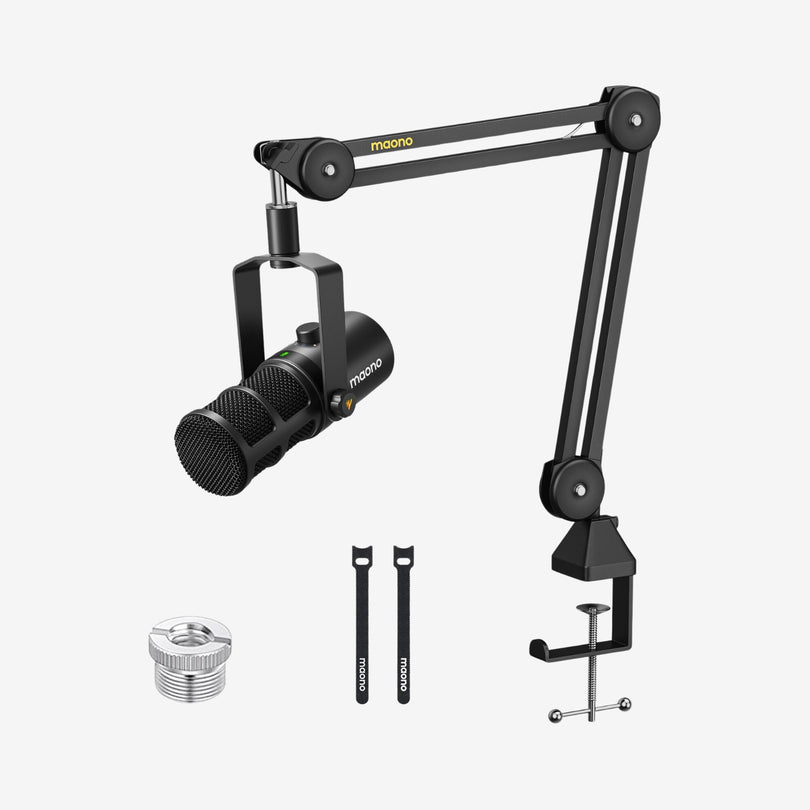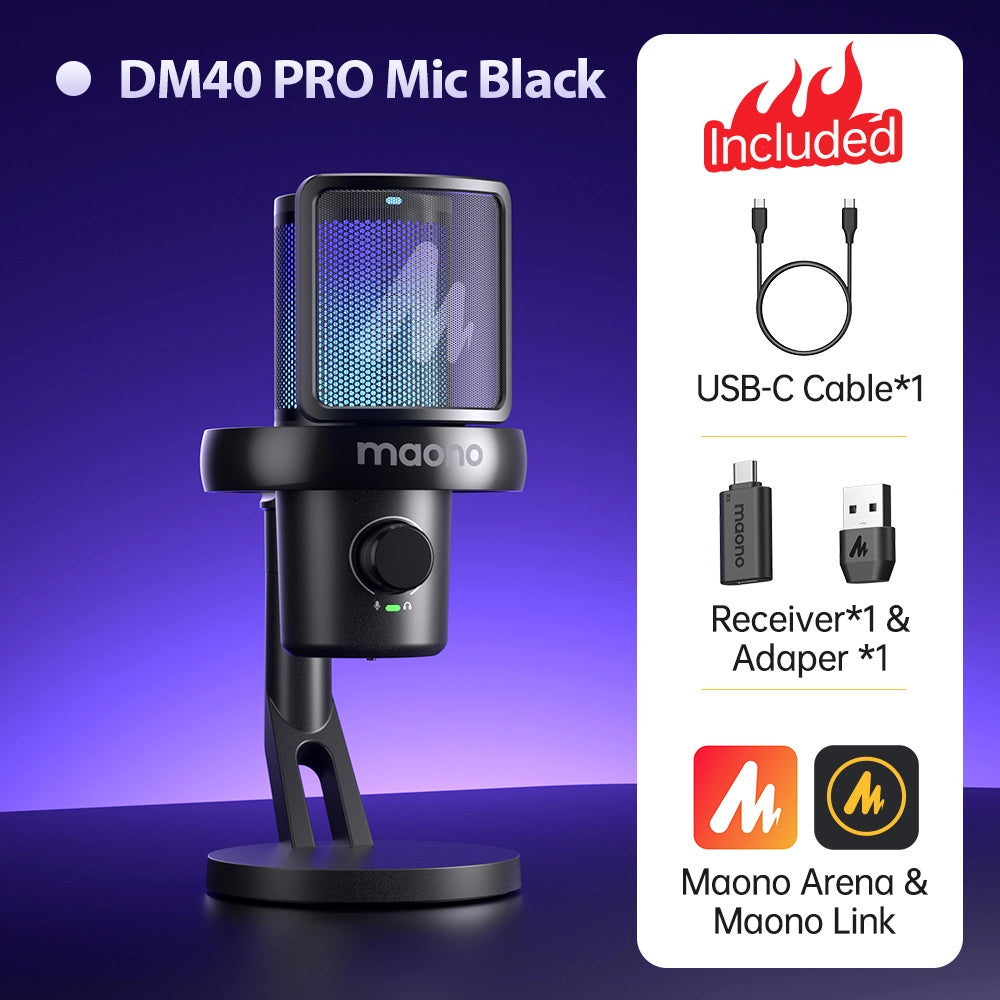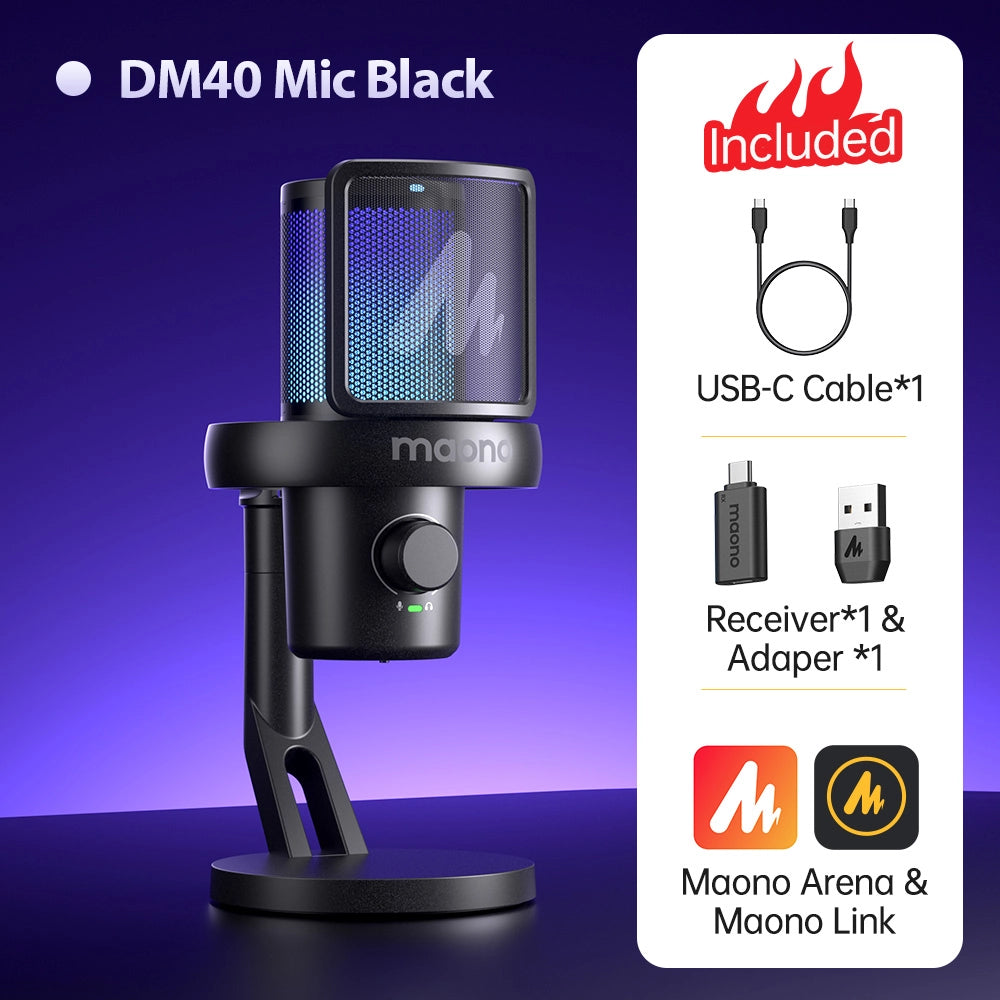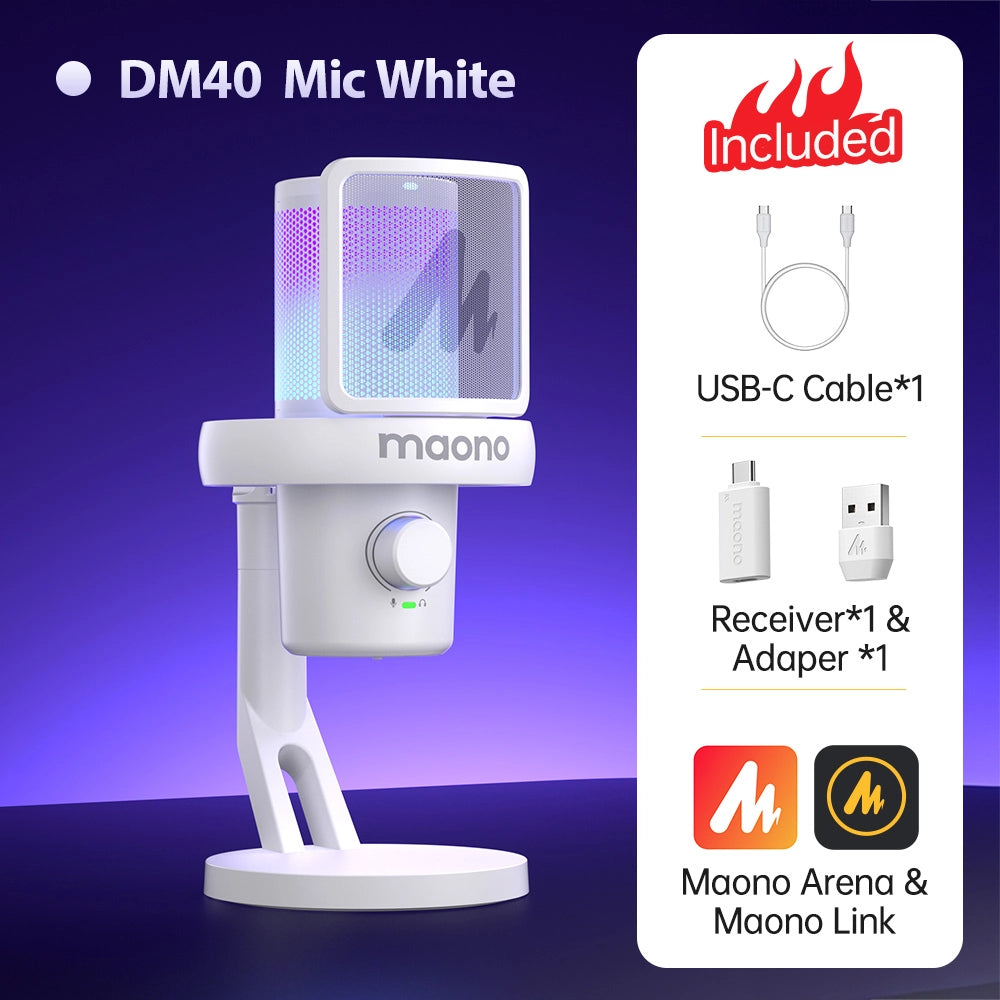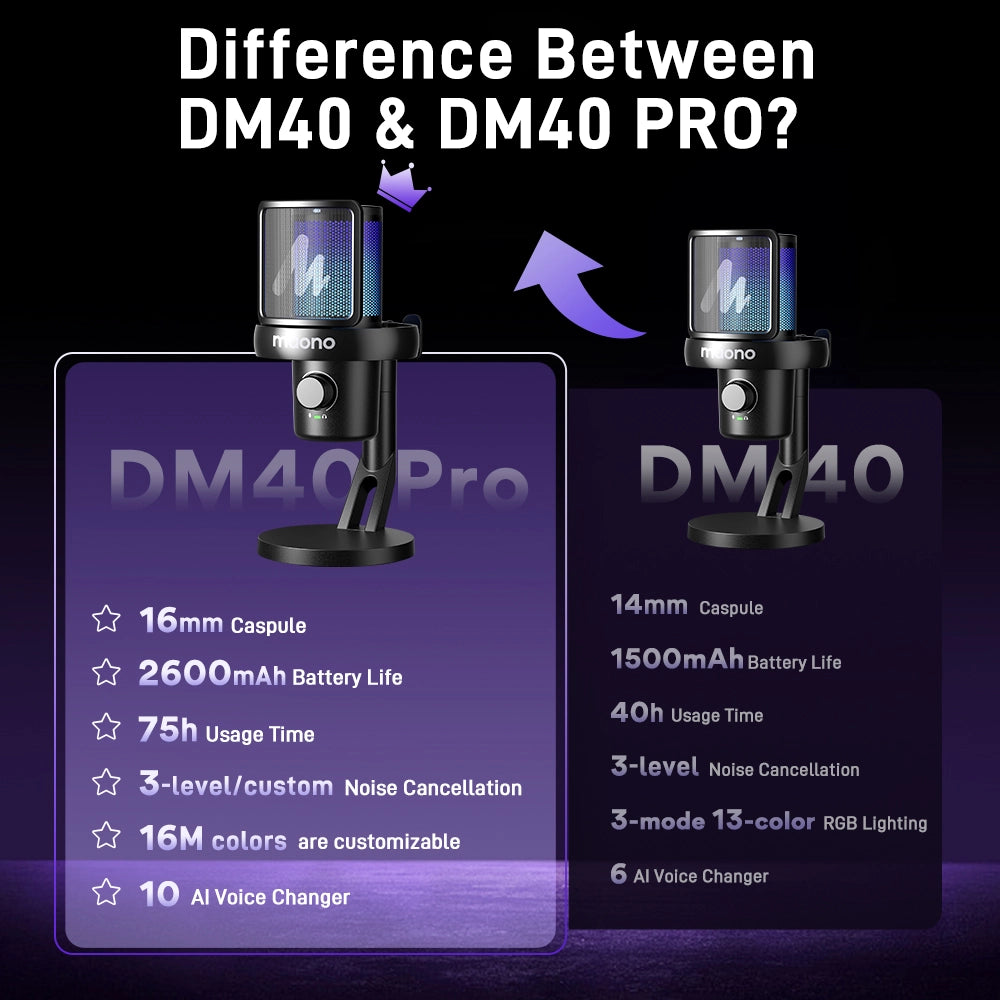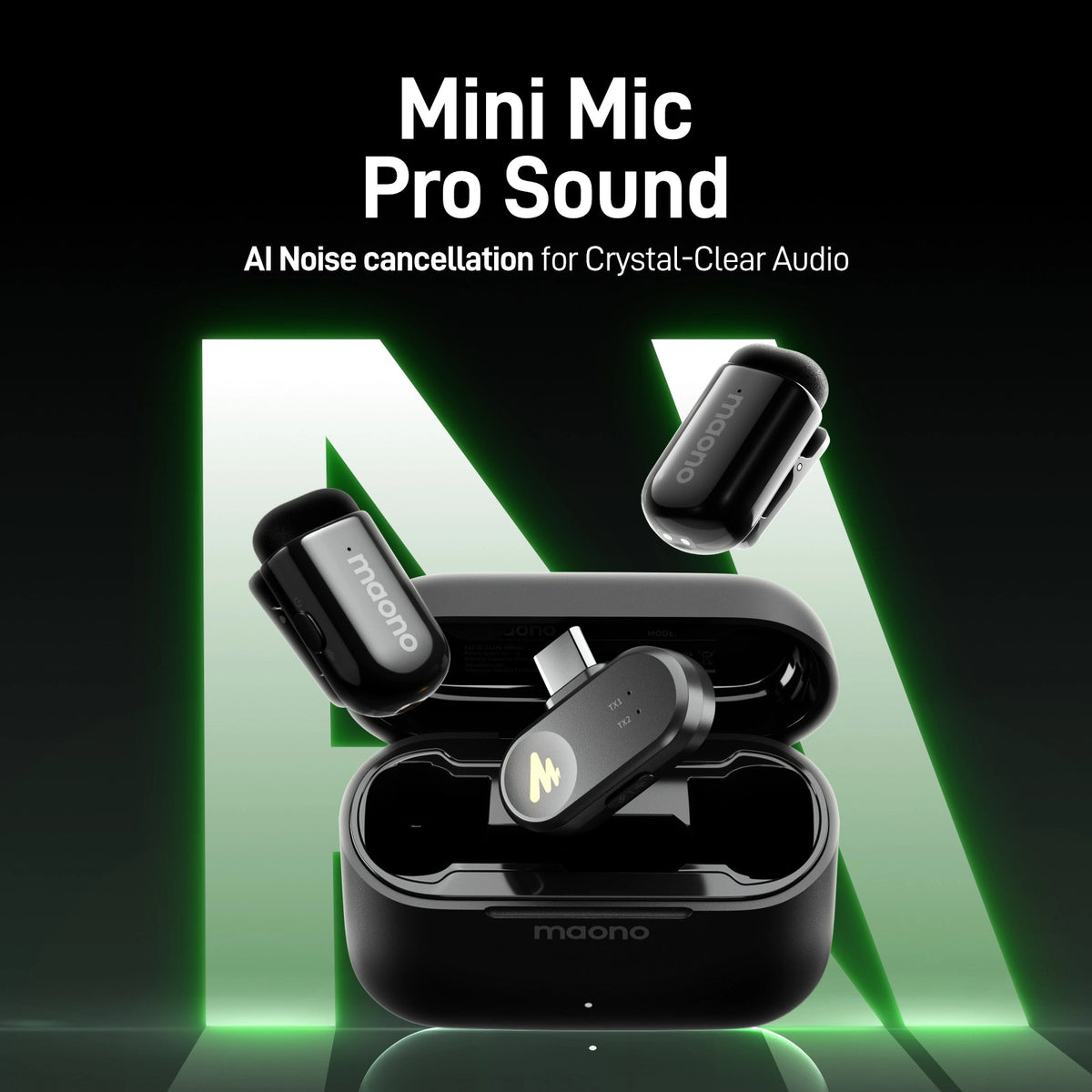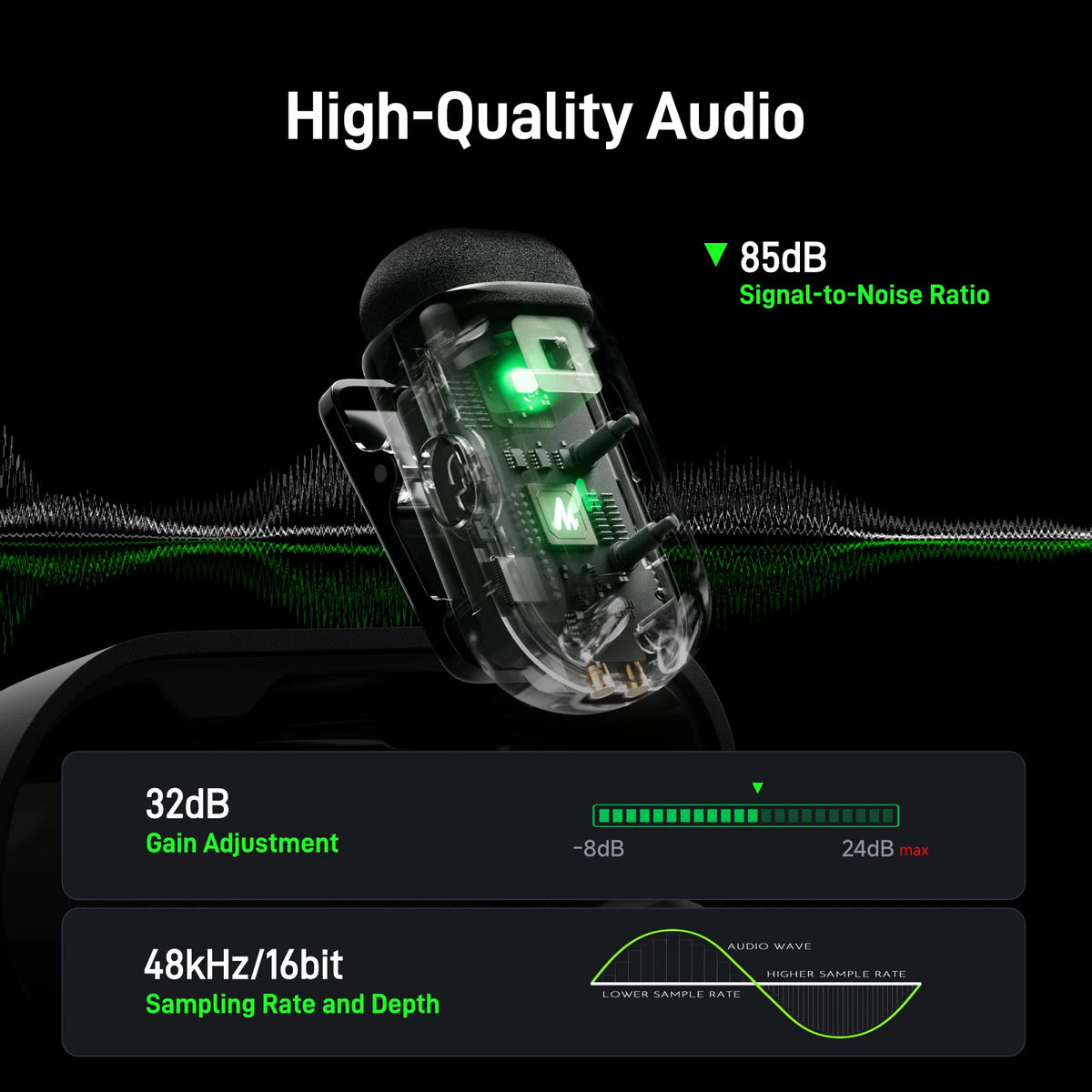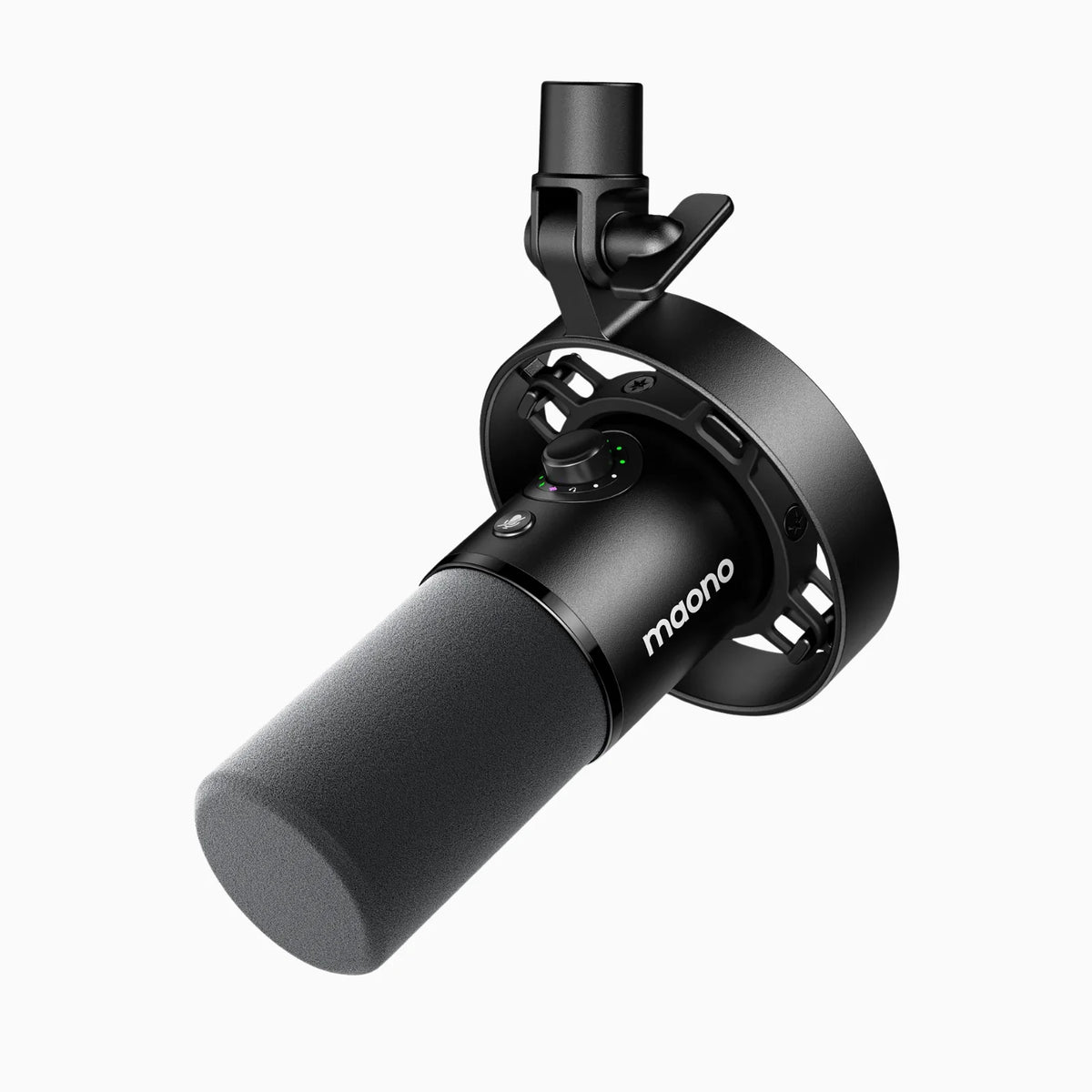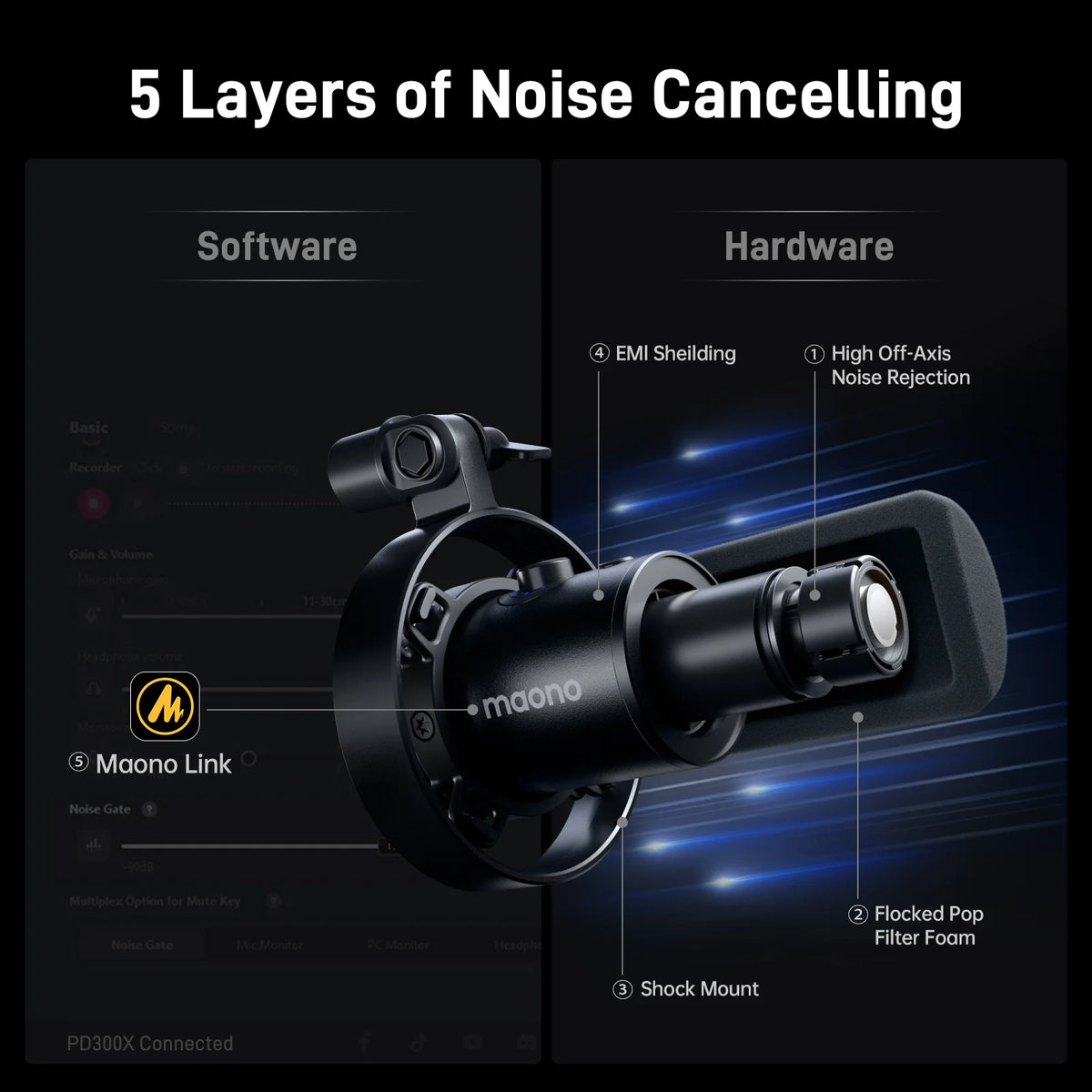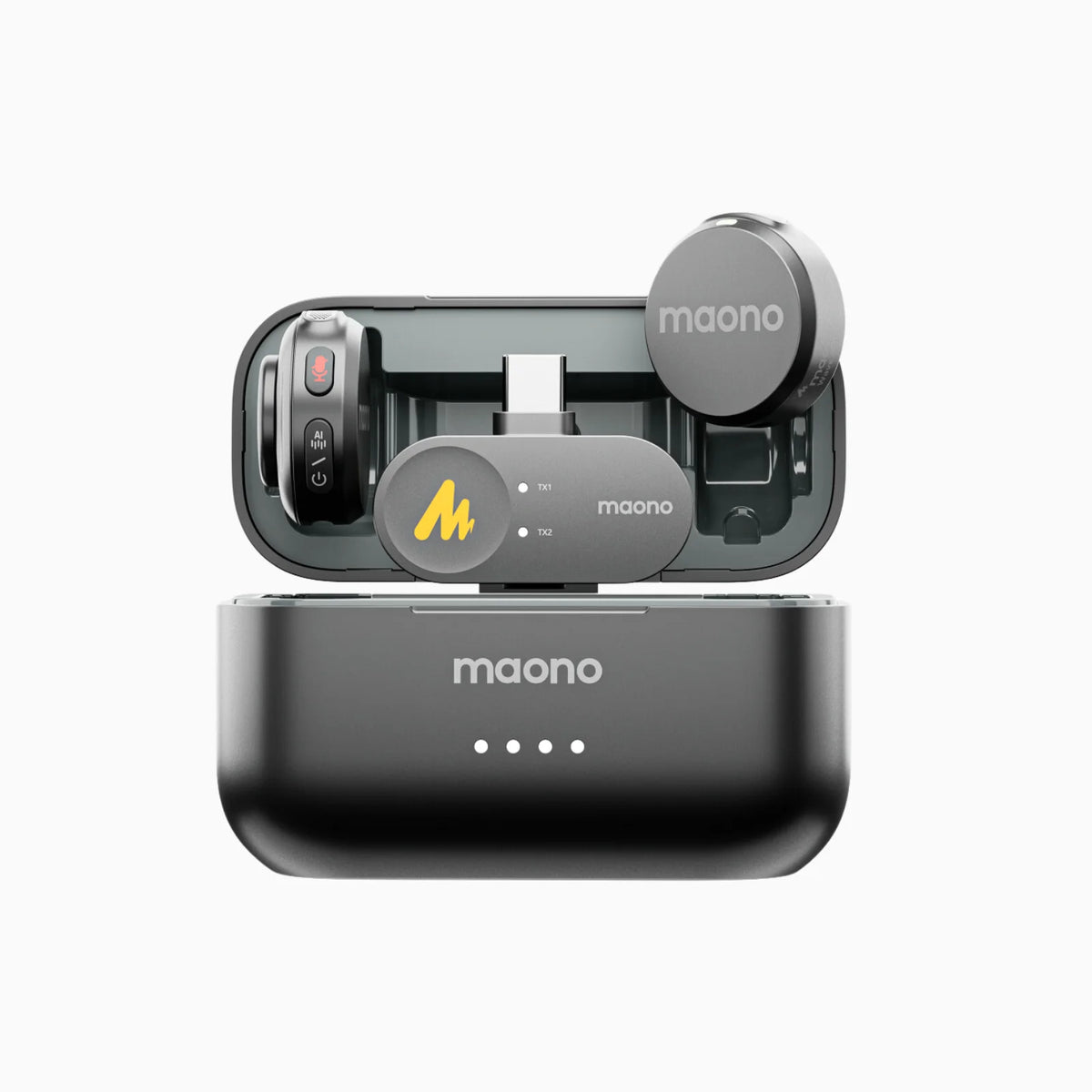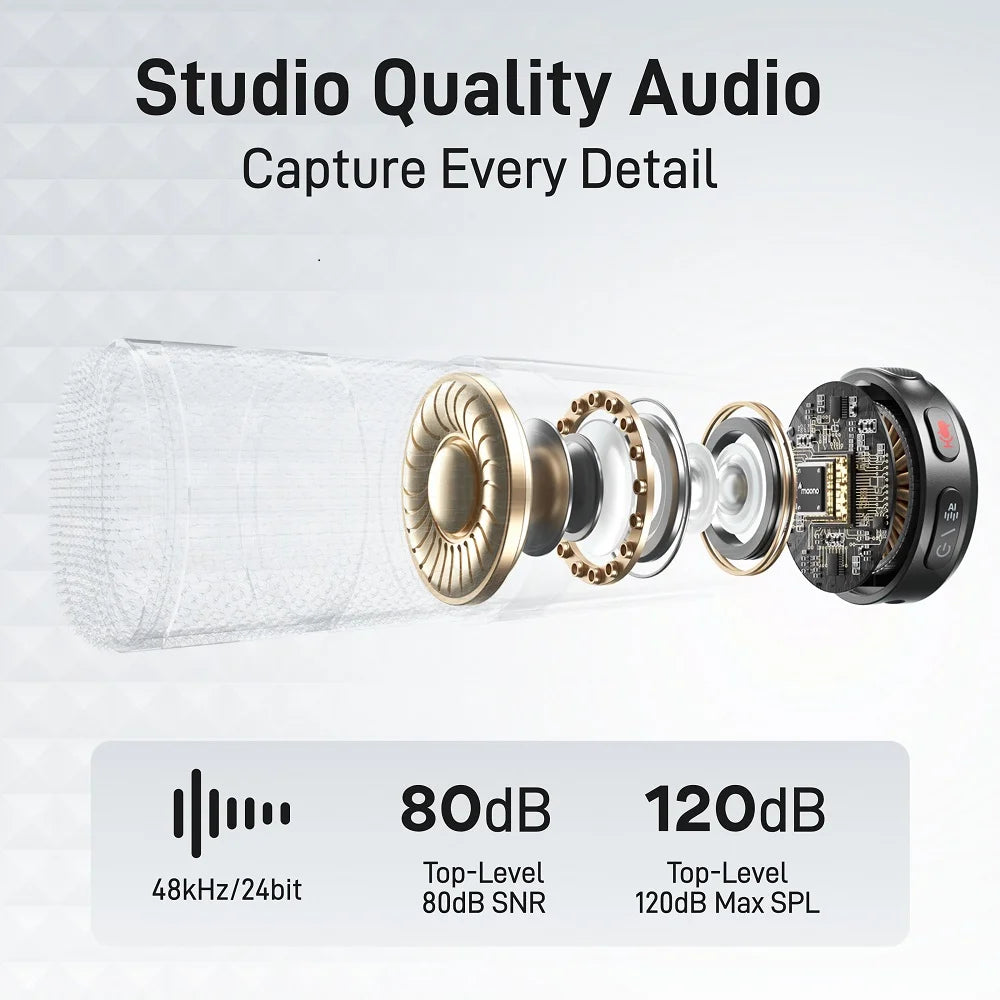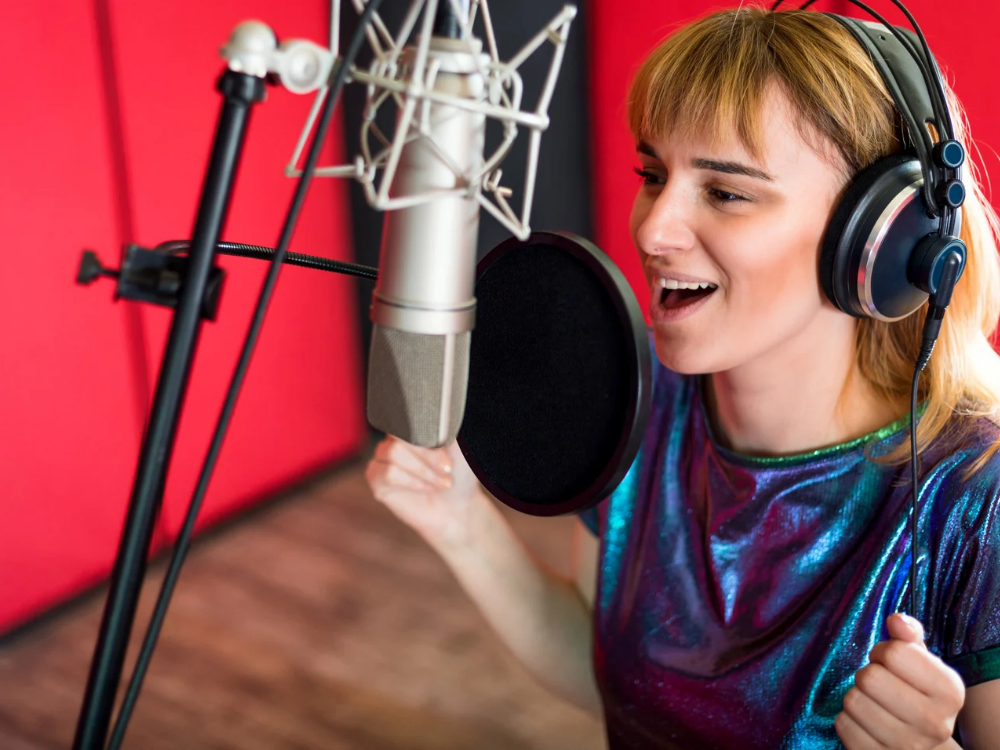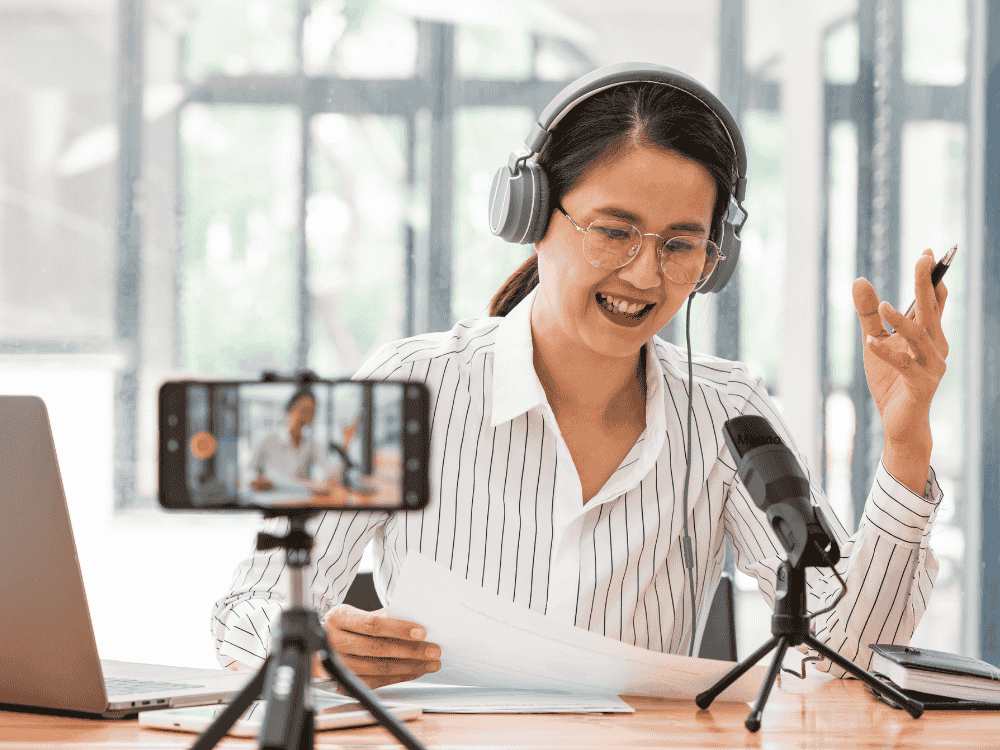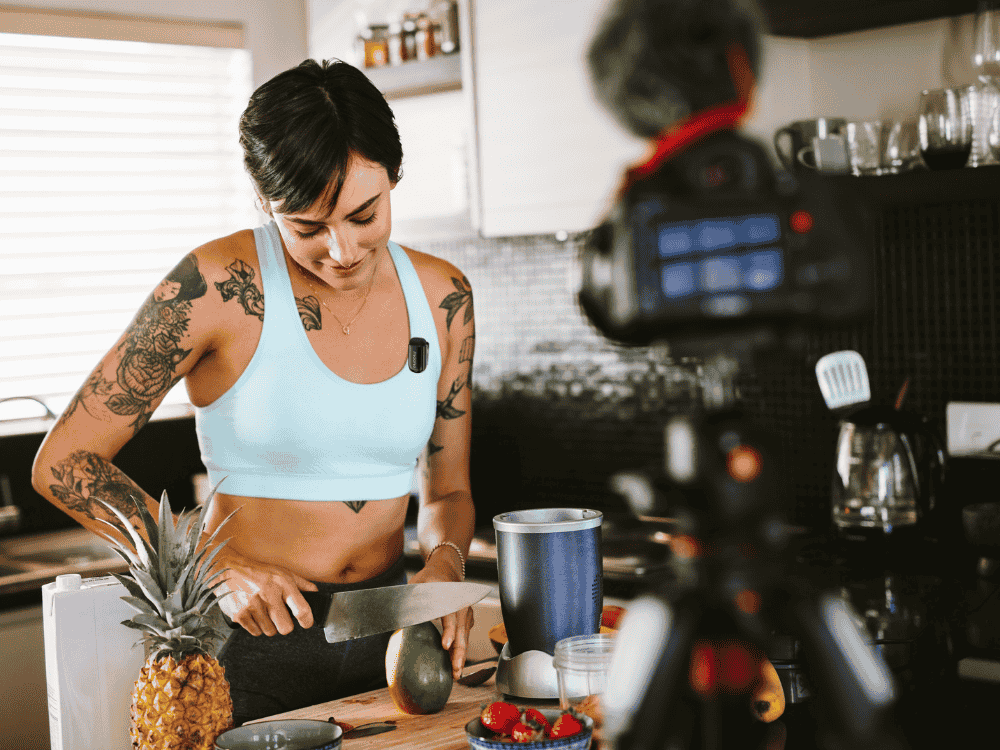Audio quality plays an important role in producing a high-quality podcast, which makes selecting a professional microphone a key decision for your podcasting. If you're looking for an affordable dynamic microphone that delivers professional-quality sound for podcasting, you’ve come to the right place. There are numerous mics available for podcasting; however, the best podcast microphone for you isn’t always the most expensive one. What matters is choosing the right mic, which means you need to consider your podcast format, budget, and preferences, as well as be well-informed about the available podcast mics.
Shopping around online hunting for the best affordable dynamic microphone but feel overwhelmed with all the options in the market and confused about which one to choose? We’ve outlined the following list of good microphones for podcasting under $100.00 for podcasting to help you weigh up your options.
Overview of Dynamic Mics vs. Condenser Mics:
Dynamic vs. Condenser: Dynamic mics are usually more focused with a cleaner recording, while condenser mics have a higher output level and are more sensitive to sub-par environment with a better response to high frequencies. If you’re in a noisy environment or plan to record louder sounds, a dynamic mic is a better choice. However, when it comes to studio recording or vocals, a condenser mic is preferred.
USB vs. XLR: USB works just by being plugged into the USB port of your laptop or phone, while XLR requires additional power sources.
Why Choose Good Microphones for Podcasting?
Choosing the best podcast microphones ensures clear, professional sound quality, which is essential for engaging your audience. A high-quality mic minimizes background noise, enhances voice clarity, and provides a more polished listening experience, helping you stand out in a competitive podcasting market.
High-quality microphones are essential for creating professional audio content because they excel in three areas:
-
Audio Clarity: Superior microphones capture crisp, natural sound by accurately reproducing a broad range of vocal tones. This ensures your voice sounds clear, enhancing the overall listening experience.
- Reducing Background Noise: Many professional microphones feature directional polar patterns, such as cardioid or supercardioid, which focus on the speaker's voice while minimizing ambient noise. Built-in noise filters further reduce plosives and handling sounds.
- Engaging Listeners: Clear and distraction-free audio keeps audiences engaged. Quality microphones allow for consistent sound levels and convey emotions effectively, which helps maintain a strong connection with listeners.
Investing in a good microphone ensures better sound quality, less noise interference, and a more captivating experience for your audience.
MAONO PM422 -The Best Budget Professional Podcast USB Microphones - $99.99

MAONO PM422 is a cardioid USB condenser mic that comes with a complete kit including a boom arm, a table clamp, a shock mount, a foam covering, a pop filter, and the USB cable at a $99.99 price - well-worth your budget. With a flat frequency response of 20Hz-20kH and delivers a rich, full-bodied sound, it is well-suited to podcasting and sound reproduction. Besides zero-latency monitoring by simply plugging your headphone into the mic jack, it also features a touch key mute and hardware gain knob.
Pros
- Excellent sound quality
- Plug and play
- Quickly touch mute
- Hardware gain knob
- Lots of accessories included
RECOMMENDED VIDEOS FOR YOU...
MXL 770- XLR Microphone - Around $80

MXL 770 is a small-diaphragm cardioid condenser microphone that features a warm and balanced sound and 30Hz-20kHz frequency response, making it a great option for recording vocals and music. Made with durable metal finish, it also has a black and gold fashionable design.
Pros
- User-friendly
- Sound quality
- Sensitive and versatile
- Fashionable design with durable quality
Cons
- Concern over its long-term durability
- Background noises
- The quality of the shock mount
Top Picks: Good Microphones for Podcasting Under $100
1. Samson Q2U -XLR Microphone - Around $60

Samson Q2U is an affordable dynamic microphone with a cardioid pickup pattern that supports both USB and XLR connectors. Along with the microphone, it comes with an extendable desktop stand, a mic clip, a pop-filter and the USB and XLR cables. Its audio output sound quality is good for its price and does a great job at rejecting off-axis noise. It basically includes everything that a beginner needs to start your own podcasting.
Pros
- Dynamic mic with cardioid polar pattern
- USB/XRL connectivity
- Great Sound quality
- Handheld or desktop operation
- Lots of included accessories
Cons
- No shock mount included
- Lacks USB-C
2. Shure SM58 - Dynamic XLR Microphone Around $99

Manufactured with removable grille and metal construction, Shure SM58 is a XLR dynamic microphone with a frequency response ranging from 50 Hz to 15 kHz and equipped with a shock mount system and built-in pop filter to effectively reduce background noises, which is ideal for especially for live performances.
Pros
- Dynamic mic
- Durability
- Warm and consistent sound
- Cardioid pickup pattern
- Shock amount included
Cons
- Not good enough for studio recording
3. Blue Yeti USB Mic Around $79-USB Dynamic Microphone

Blue Yeti USB Mic is a well-built budget dynamic mic with a combination of affordable price, quality and performance. It is easy to use, offers a high-quality crisp sound and supports real-time monitoring with its built-in volume knob. Being able to switch between four polar patterns including cardioid, omnidirectional and directional, it is a great USB podcast microphone suitable for a single or multi-people podcast.
Pros
- Dynamic mic
- Plug-and-play
- Excellent sound quality
- Built-in gain control and volume knob
- Fourpolar patterns
Cons
- XLR connectivity not available
- No pop filter included
Say that after doing a quick bit of research, you realize that a dynamic mic fits your requirements and current setup. Here’s a quick guide to help you choose the right budget dynamic mic and understand what features to look for.
Quick Buying Guide: Features to Consider When Selecting a Budget Dynamic Mic:
When selecting a dynamic mic on a budget, it's essential to consider several features to ensure you're getting the best performance for your money. While dynamic mics are known for their durability and reliability, not all budget-friendly options are created equal. Here's what to look for:
1. Frequency Response
The frequency response of a microphone refers to the range of sound frequencies it can capture, typically measured in Hz. For podcasting, you'll want a mic that captures a wide range of frequencies to ensure your voice sounds clear and natural. Look for a dynamic mic with a frequency response between 50 Hz to 15 kHz or higher. A wider frequency response ensures that your mic can pick up the full range of your voice, including both low-end and high-end tones, delivering better overall sound quality.
2. Durability and Build Quality
When you're on a budget, it's important to choose a microphone that's built to last. Durability is one of the main advantages of dynamic microphones. Unlike condenser mics, dynamic mics are less sensitive and more resistant to damage from drops or rough handling, which makes them perfect for podcasters on the go. Look for mics with a solid metal construction or rubber shock mounts to prevent internal damage. A sturdy build will ensure your mic can withstand the rigors of regular use and last for years.
3. Sensitivity and Noise Rejection
One of the standout features of dynamic mics is their lower sensitivity compared to condenser mics. While this means they won’t pick up every little sound in the room, it also means they are better at rejecting unwanted background noise. This is especially important if you’re recording in a less-than-perfect environment. Look for mics with cardioid or supercardioid polar patterns, which focus on capturing sound from the front of the mic and reject noise from the sides and rear. This feature will help isolate your voice, ensuring a clearer, more professional sound even in noisy environments.
Considering these features such as: frequency response, durability, and noise rejection, will allow you to select a dynamic mic that not only fits your budget but also delivers high-quality audio for your podcast. Remember, a great mic is an investment in your content, and you don’t have to break the bank to get professional sound quality!
Frequently Asked Questions:
1. What are some good microphones for podcasting beginners?
For beginners, USB microphones are a popular choice due to their ease of use and plug-and-play functionality. Here are a few excellent options:
- Maono PM422: Offers cardioid polar pattern for focused sound and excellent noise reduction.
- Samson Q2U: Combines USB and XLR outputs, providing flexibility for future upgrades.
- Audio-Technica ATR2100x: Known for clear sound quality, durability, and dual USB/XLR connectivity.
These microphones provide great audio quality at an affordable price, making them ideal for new podcasters.
2. Are USB or XLR microphones better for podcasting on a budget?
USB microphones are generally better for budget-conscious podcasters due to their affordability and simplicity. They require minimal setup—just connect directly to a computer, and you’re ready to record.
However, XLR microphones offer superior sound quality and scalability but require an audio interface or mixer, which increases the cost. If you plan to expand your setup later, consider a hybrid like the Samson Q2U or Audio-Technica ATR2100x, which support both USB and XLR.
In summary:
- USB Mics: Best for beginners or those on a tight budget.
- XLR Mics: Better for those seeking higher audio quality and future expansion.
Related Articles:
Dynamic vs. Condenser Mic: Which One to Use
Dynamic Mic Guide: Finding the Perfect Fit for Your Needs


